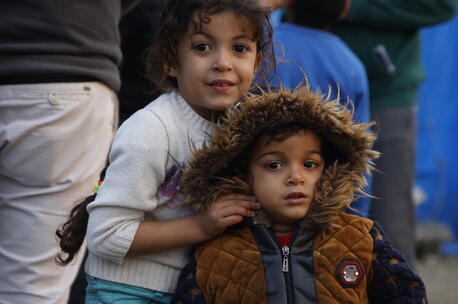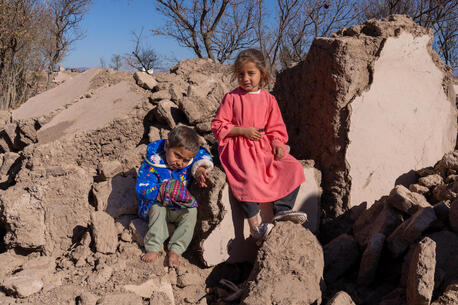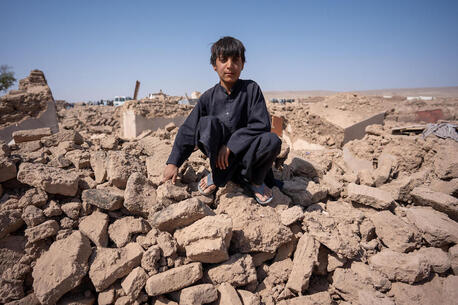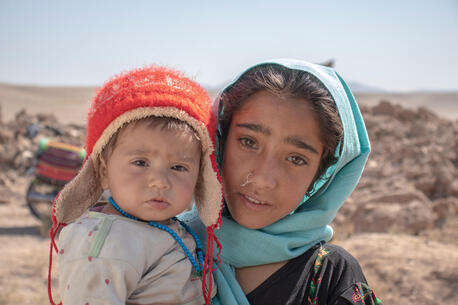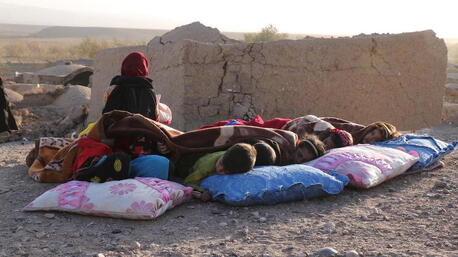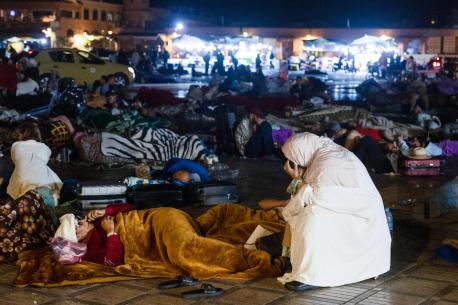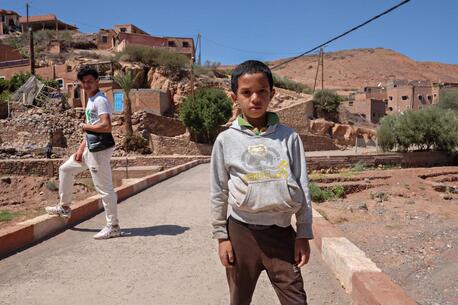
UNICEF in Morocco
UNICEF supports government-led efforts to improve health care, nutrition, education and protection for the children of Morocco. Learn more and how to help.
Children and families affected by the September 2023 earthquake will need long-term support
Morocco is a lower middle-income country in North Africa with a population of 37 million, including roughly 11 million children. Before COVID-19, the country saw solid economic and social progress, but the pandemic triggered a recession; unemployment went up and child poverty increased.
Other stresses have included the economic ripple effects of war in Ukraine and persistent drought, among other impacts of climate change.
On Sept. 8, 2023, a powerful earthquake struck Marrakesh and the High Atlas Mountains region — the strongest seismic event to hit the country since 1960 — killing over 2,800 people, displacing or otherwise disrupting the lives of hundreds of thousands more, and destroying critical infrastructure, including health facilities and schools.
UNICEF has provided support to children in Morocco since 1994, so when the quake struck, UNICEF mobilized its humanitarian staff to support the response led by the Kingdom of Morocco.
Ongoing country programs focus on children and families in rural areas, and improving their access to quality inclusive social services. UNICEF also works with partners on resilience-building interventions for climate change adaptation and strengthening capacities to deliver essential services during crises.
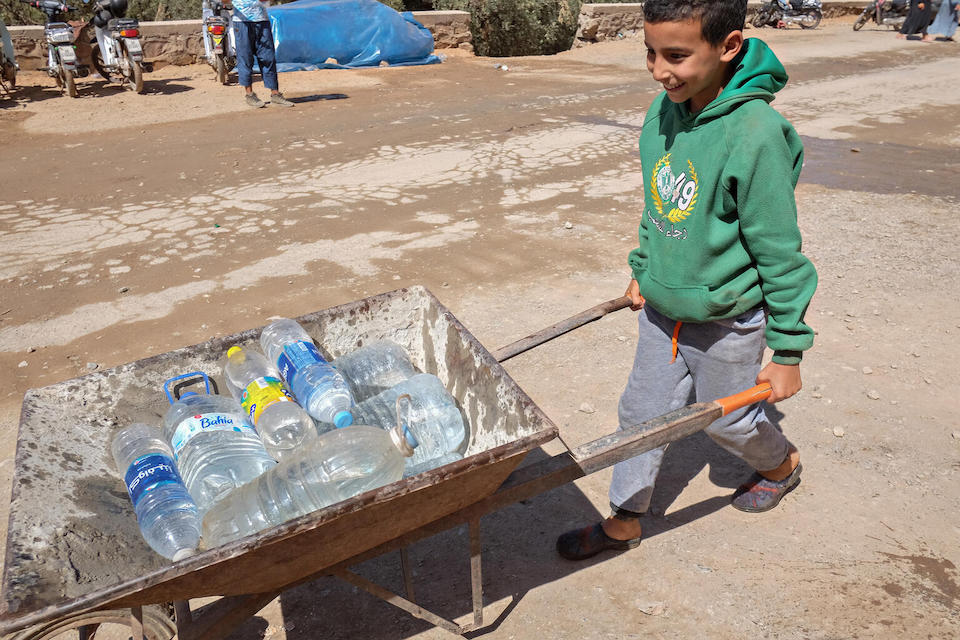
An estimated 100,000 children were affected by the September 2023 earthquake. Psychosocial support will be needed to help children and caregivers process their experiences during the disaster and its aftermath. Reconstructing schools to help children get back to learning will also be critical for their long-term recovery.
Despite social and economic progress, disparities remain
UNICEF Morocco has long been committed to working alongside the government and other partners to narrow inequities, strengthen systems and institutions and improve access to quality social services for children and families who need them most.
Despite progress against child mortality, those living in rural areas remain disadvantaged. There are wide disparities in accessing quality health care, for example, including prenatal care for pregnant women, and other social services. Migrant children and other children on the move and children with disabilities remain marginalized.
UNICEF focuses on supporting the government’s priorities, in health, education, social protection and other area and helping to drive progress toward the Sustainable Development Goals. Many of UNICEF’s cross-cutting strategies apply to ongoing program work in Morocco, including adolescent development and participation, social and behavior change and community engagement.
Improving maternal and child health
Recent efforts in Morocco to expand primary health services have paid off. Child immunization rates are high, with 91 percent of children under age 1 fully vaccinated and on schedule. Skilled health workers attend to 97 percent of babies born in cities — but that figure drops to 74 percent for babies born in rural areas.
UNICEF supports efforts to improve access to quality health care in underserved areas to help further reduce maternal and child mortality. UNICEF is also helping the country make mental health care for children more accessible.
Eliminating barriers to girls’ education
In Morocco, 1 in 5 girls of secondary school age in rural areas is out of school — almost double the number of boys — mainly due to economic pressures on households, parents’ concerns over girls’ safety and a lack of support for menstrual health and hygiene.
UNICEF is supporting efforts to eliminate those barriers. Technical expertise from UNICEF is helping to make schools safer for girls and to ensure schools have adequate sanitation and hygiene facilities.
In recent years, UNICEF Morocco has also been working with the education and youth ministries to improve early education and to expand skills building opportunities for young people. Teacher training and capacity building supported by UNICEF focuses on inclusive education for children with disabilities and other special needs.
To address the need for a shock-resilient education system going forward, UNICEF will support the use of accessible digital learning and other platforms — with an emphasis on attaining gender parity in digital access and skills.
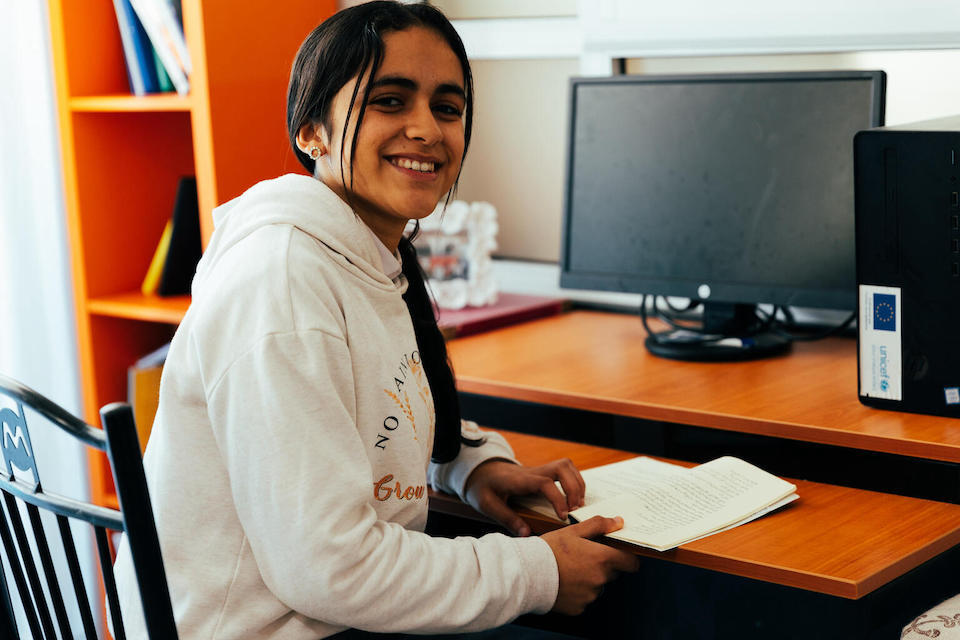
Strengthening child protection and social safety nets
Another priority for UNICEF is Morocco is to help fuel a social movement for zero tolerance of gender-based violence and violence against children. As part of that effort, UNICEF supports measures aimed at strengthening policies and procedures around violence prevention and response through better reporting and case management.
A national plan of action to end child marriage has been developed and adopted by all stakeholders, with UNICEF’s support. UNICEF is also supporting the implementation of a national strategy for asylum and migration, particularly for children on the move. And to increase the resilience of vulnerable families to economic, climate change and other shocks, UNICEF aims to support social protection programs including cash transfers.
UNICEF works in more than 190 countries and territories to safeguard children's rights and help every child thrive. Learn more.
Support UNICEF. Your tax-deductible contribution can make a difference. Donate today.
